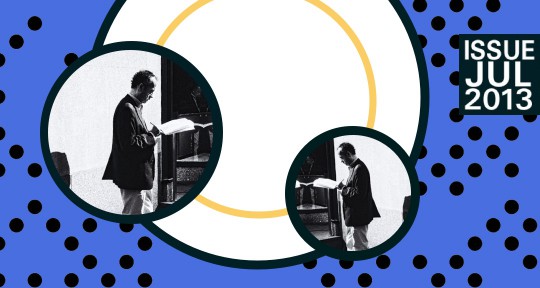We have organized four IndieGoGo campaigns in all our eight years now, and each of the last three times, it’s sucked so much life force from us that we have, on one occasion, even had to skip an issue (there is no Spring 2015 edition) to recover from it. For some reason, however, it does not take long at all after our first campaign to hit our stride again. A sampling of what we were up to immediately after April 2013, apart from sending ‘thank you’s and perks to 231 supporters: We (1) launched our first-ever translation contest; (2) organized a massive translation project that saw translations into eighteen additional languages of Jonas Hassen Khemiri’s brilliant send-up of racial profiling; (3) revamped our website to include a map (thus allowing readers to access our content by geographical region); (4) nominated ourselves for a TED Prize (albeit in vain) and, last but not certainly not least; (5) held our largest recruitment drive ever. The rapid expansion takes a toll: my inbox is invaded daily by check-ins. Fortunately, around this time, we migrate to Trello for issue production work. To give you a sense of how much back and forths are required for just one article (say, Can Xue’s interview conducted by Dylan Suher and Joan Hua, as recounted by Dylan below): Trello records 84 comments by 12 team members spanning the period of May 28 to July 15. Here is Robyn Creswell of The Paris Review on the Summer 2013 issue: “It’s hard to read in a heat wave, but the July issue of Asymptote is so absorbing I hardly notice my sweat drops hitting the keyboard. Even more impressive than the diversity of things translated—book reviews in Urdu, fiction in Bengali, poetry in Faroese—is their quality.”
The Summer 2013 issue of Asymptote is a fine illustration of the principle that translation is just a special subset of the general problem of communication: the problem of trying to relate your experience to someone else, of trying to put something “in other words,” of trying to put something into words in the first place. This principle comes across most clearly in Naoki Higashida’s attempts to relate his experience as an autistic person, and in the visual section’s pieces on asemic writing and Ghada Amer’s use of Arabic script. All three remind us what a tentative, unruly enterprise language is. The shapes shackled into service by the Phoenicians millennia ago long to return to the wilds of visuality; when tasked with expressing the plentitude of the autistic mind, simple words seem as crude a tool as a chert axe.
The problem of referentiality epitomized by these pieces runs throughout this entire issue. The way Banaphool’s “Nawab Sahib” (translated by Arunava Sinha) seems to exist just outside the bounds of reality, its repetitive structure, and its surprising twists all suggest a fable (or a joke), but the moral to which it points remains sublimely hazy. E.C. Belli, translating Pierre Peuchmaurd, repeats the word “glimmer” again and again in a mantra of irreducible images: “The glimmers of lakes, of iron, of girls”; “The glimmers of otters inside their prey.” The insistence of the repetition pounds significance into a non-entity of a word. READ MORE…


